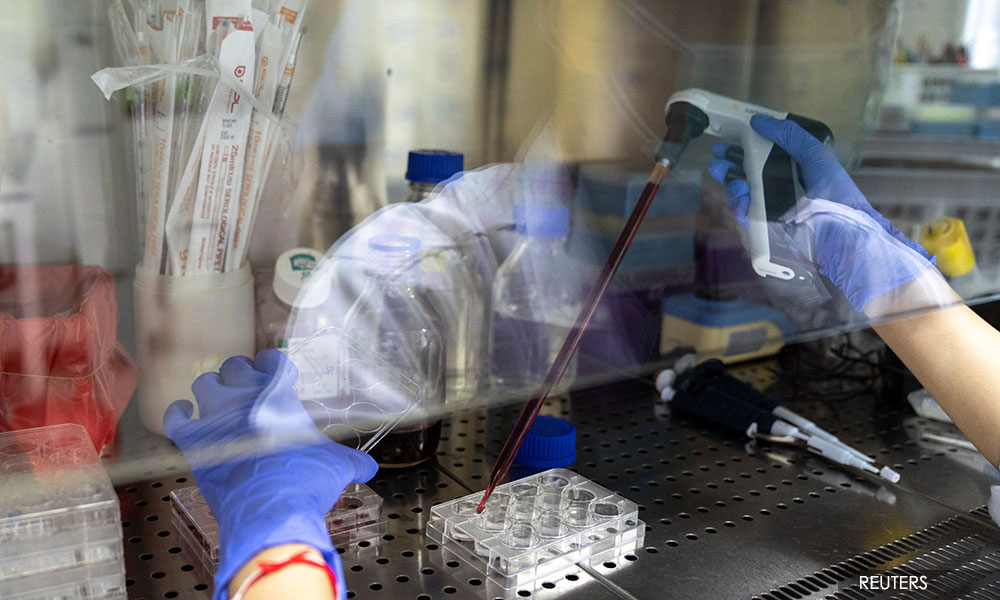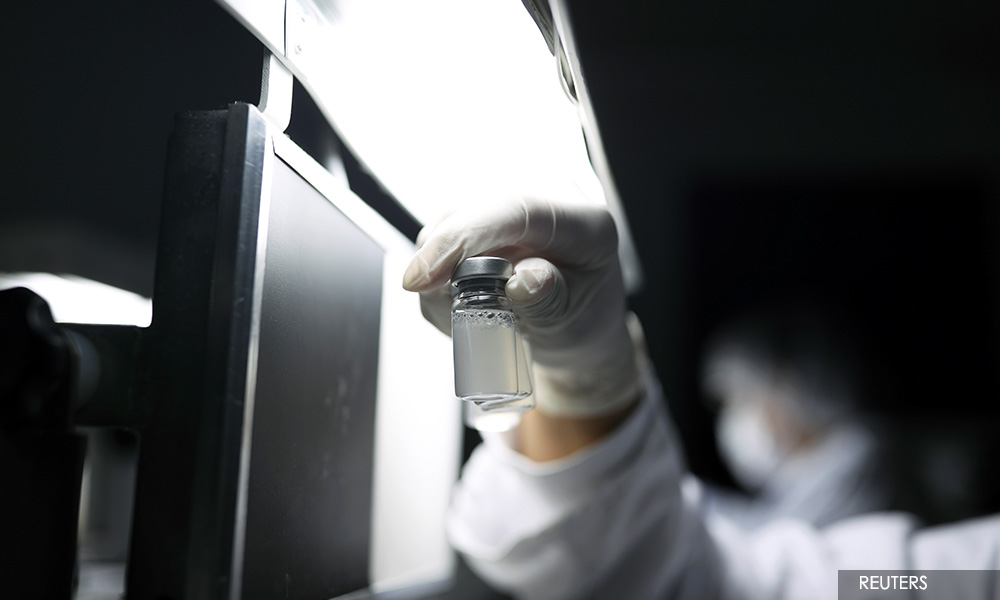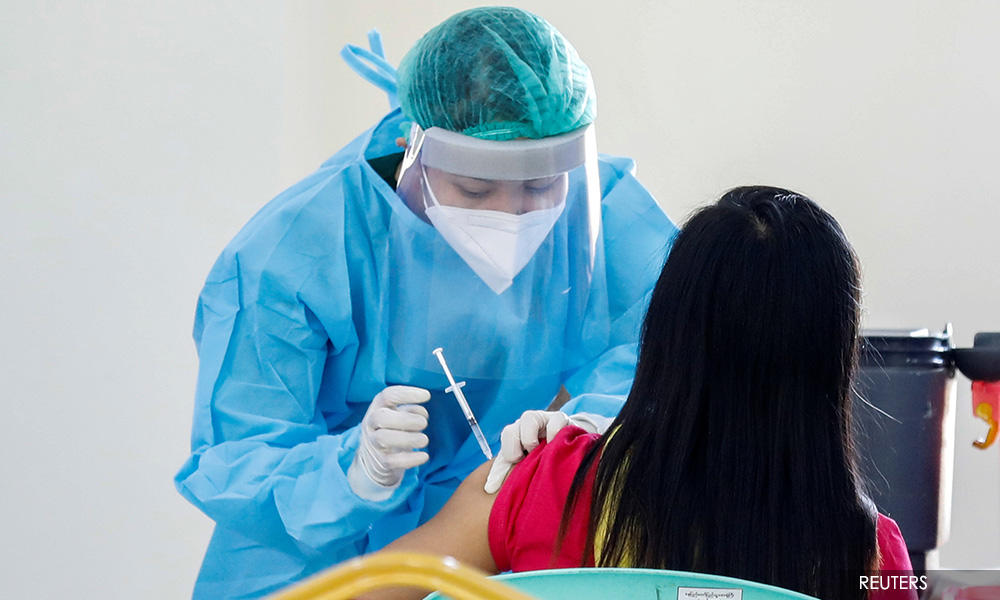COMMENT | There have been a number of concerns highlighted about the messenger RNA (mRNA) vaccine over the last few weeks. As young Malaysian scientists, we would like to delve into the science or technology behind the mRNA vaccines in the hope that it would provide the people with a more wholesome understanding of the technology.
Like the general population, the scientific community was caught off guard by the sudden appearance of the Covid-19 virus. Among other initiatives, there was an urgent need for scientists to try to develop a vaccine that would stop the spread of the virus.
Although the Covid-19 pandemic is unprecedented, scientists and global public health experts have been preparing for large-scale outbreaks since the 1990s.
The coronaviruses that caused the previous Sars and Mers epidemics (and now the Covid-19 pandemic) are among harmful viruses and bacteria that have made the priority list in the 2016 World Health Organisation (WHO) R&D Blueprint for Action to Prevent Epidemics, found here.
Scientists have been researching various new technologies to enable rapid production of effective vaccines against such harmful virus and bacteria. The mRNA has been studied for a long time in the laboratory and clinical settings and the Covid-19 mRNA vaccines that were approved were built on these scientific advancements.
It is for this reason, along with the dedicated public and private funding for Covid-19 research, that these vaccines were developed rapidly to combat the Covid-19 pandemic. (Click here for the history of the mRNA vaccine.)
The mRNA vaccines use molecules called mRNA that contain information to instruct the cells in our body to produce a small fraction of the virus that will then trigger an immune response. This allows the vaccinated person’s immune system to defend itself against natural Covid-19 infection.

Unlike traditional vaccines, the Covid-19 mRNA vaccines are formulated without using any actual Covid-19 virus - live or attenuated - which attests to the safety aspect of the vaccine as the mRNA vaccine itself will not cause Covid-19 infection.
In addition, as no live sample of the Covid-19 virus was used during the manufacturing of these mRNA vaccines, there is no risk of virus contamination in these vaccines.
In December 2020, two Covid-19 vaccines were approved by the US Food and Drug Agency (FDA). As soon as these mRNA vaccines were approved, many people were concerned about the safety and efficacy of these vaccines.
While these concerns are genuine, there is a need to address several misconceptions underlying some of these concerns, with clear scientific facts and information.
A vaccine usually takes years to be developed
Many articles that are available to the public have already addressed the scientific basis of these mRNA vaccines. We would like to highlight a few issues and hopefully, bring more clarity.
A vaccine usually takes years to be developed. However, due to the urgency of the pandemic, a massive amount of resources was put in globally - both in terms of human capital and funding, and the Covid-19 mRNA vaccines have been made a priority internationally to speed up the clearance for clinical trials.
The availability of advanced high-end technologies such as computer simulation has also contributed to the expedited development of Covid-19 mRNA vaccines.
The Covid-19 mRNA vaccines have gone through rigorous laboratory and animal testing followed by a comprehensive human clinical trial. To ensure the safety and efficacy of the vaccine, these trials involved up to 10 times the usual number of clinical trial participants, recruited from people of diverse ages and ethnicities.
To read about the clinical trials, and the breakdown of its volunteers, click here and here. There have also been numerous research efforts - both ongoing and completed - on mRNA vaccines that are conducted by scientists globally.
Despite the speed, the development process for these vaccines has followed the stringent safety standards that have been set by global regulatory bodies and were approved at each level of clinical trial phases.

The side effects of vaccination, whether with traditional vaccines or mRNA vaccines, have been documented in-depth and can be found online. The side effects of Covid-19 mRNA vaccines have also been transparently reported by the vaccine manufacturers.
It is known that some people who received these mRNA vaccines commonly experienced soreness, swollen arms, or fevers and chills. However, these side effects are not long-term, they are not dangerous, and they have been documented to have disappeared in due time.
With respect to the high-profile cases of deaths and more serious side effects, reportedly after taking the Pfizer mRNA vaccine, there are explanations for most of the cases, which indicate that they are not related to the vaccination. Click here, here and here to read the explanations.
There has also been a concern on the efficacy of these Covid-19 vaccines, whether it is the live or attenuated vaccines or mRNA vaccines, against newer variants circulating globally.
However, recent studies have shown that the mRNA vaccines will remain effective to protect against different Covid-19 variants because the vaccines were designed to target a part of the virus that is less susceptible to genetic changes.
Also, the mRNA vaccines and vaccines made using live or weakened virus are designed to trigger a more complex and broader immune response to confer protection against the virus in different ways. Therefore, the vaccines will still be able to trigger our immune system to fight against any mutated or newer variants of the virus.
Concurrently, scientists continue to closely monitor the appearance of new variants while actively researching and preparing to produce a newer vaccine against potential variants, should the current list of vaccines be found ineffective in the future.
The safety and efficacy of Covid-19 vaccines are at the heart of every regulatory process and this process cannot be compromised in order to ensure that the long-term health of citizens of a country remains optimal.
In Malaysia, the Special Committee on Covid-19 Vaccine Supply Access Guarantee has acquired the Pfizer vaccine (which currently has the highest reported efficacy) as part of a portfolio of vaccines for use by Malaysians.
This portfolio will also include the AstraZeneca, Gamaleya, Sinovac and CanSino vaccines (depending on National Pharmaceutical Regulatory Agency approval).

The National Pharmaceutical Regulatory Agency (NPRA), which has been a WHO Collaborating Centre for Regulatory Control of Pharmaceuticals since 1996, recently reviewed the scientific documents submitted by Pfizer and found that it met the international and national safety and efficacy requirements.
Our battle against Covid-19 is ultimately a shared one, and our goal remains the same - to protect lives and livelihoods. The public’s concern about the safety and efficacy of Covid-19 vaccines should be taken seriously and addressed with scientific truth if we want to win this battle.
As scientists, we have shared some of the facts here, but more data surrounding the science behind the mRNA vaccine technology can be found online. We hope that everyone will arm themselves with information from trustworthy resources.
We hope that this response, highlighting the scientific evidence, can reassure everyone that all stakeholders, including the scientific community, have gone beyond the norm in committing to extreme precautions and care in evaluating and ensuring the efficacy and safety of the Covid-19 mRNA vaccines.
As scientists, ensuring that public health is protected through the use of safe and effective vaccines are among the core purpose and primary motivations behind the development of any vaccines.
We also hope that the public will trust the scientific evidence in the midst of this public health crisis. We cannot stress enough that a successful Covid-19 vaccination programme is vital in our quest towards enjoying a pre-Covid-19 quality of life.
We can protect our loved ones better when we protect ourselves. We hope that adherence to public health precautions will still be part and parcel of life, even post-vaccination, until we achieve herd immunity.
YOUNG SCIENTISTS NETWORK-ACADEMY OF SCIENCES MALAYSIA is an organisation that serves as a platform to promote a career in science under the Academy of Sciences Malaysia.
The views expressed here are those of the author/contributor and do not necessarily represent the views of Malaysiakini.

